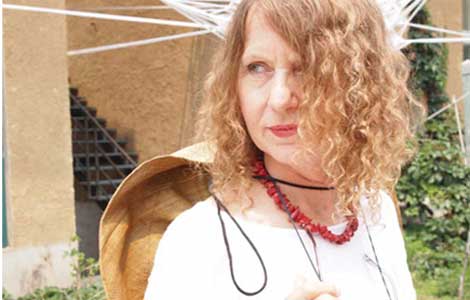Hot Issues
US hunters eyeing prey on Chinese mainland
Updated: 2011-08-09 07:34
By He Dan (China Daily)
Wildlife group hopes govt thinks twice about opening the door
BEIJING - China could reopen its doors to international hunters after an expert team approved several applications by United States citizens to shoot blue sheep and Tibetan gazelle in Qinghai province.
The country's top wildlife management authority will take that decision into account when they debate lifting the ban on foreign hunters.
The State Forestry Administration is expected to reply to the applicants within 20 working days, said Bi Yanying, an associate professor of law at the Beijing-based University of International Relations. Bi was among the 12 experts who gave their approval on Friday.
Permits for overseas hunters have not been issued since 2006 due to public pressure.
By the end of 2005, the industry had brought in more than $36 million from 1,101 foreign citizens, who captured 1,300 "trophies" on the Chinese mainland, according to official statistics.
China Adventure Travel and China Women Travel Service, both based in Beijing, delivered their US clients' applications, the first batch of applications since 2006, to the State Forestry Administration for hunting nine blue sheep and seven Tibetan gazelle in Qinghai's Dulan Hunting Ground, said Wang Wei, general manager of China Adventure Travel.
The two species are among the official list of national second-class protection animals.
"Trophy hunting is a popular sport in many Western countries including the US," Wang said on Monday, adding his four clients will use the trophies as memorials and donate them to museums.
China's wildlife protection law prohibits hunting animals under national protection unless it is for a "special purpose" such as research, education or exhibition.
The law also stipulates all hunting of protected wildlife needs a permit from the provincial wildlife management department.
Before the suspension in 2006, it cost a foreign hunter at least $7,900 to hunt a blue sheep and $1,500 for a Tibetan gazelle, said Wang, who added that he believes the hunting prices will rise once the government decides to lift the ban.
Ten to 15 percent of the fee goes toward the travel agency's administration work and translation services, while almost 50 percent goes to the company that runs the hunting ground. The rest is paid as tax to the government, Wang said.
China Adventure Travel helped 130 foreign hunters between 2002 and 2006, Wang said. However, it is hard to predict how many international hunters will apply for hunting in China if the ban is lifted, as the exact quotas are pending, he said.
According to 2009 data, the number of blue sheep has increased from 30,000 to 40,000 over the past 20 years in Dulan Hunting Ground, with Tibetan gazelles rising from 480 to 1,500, People's Daily reported without identifying its source.
The quota should be 520 for blue sheep and 53 for Tibetan gazelle in the next hunting season. The report quoted a hunting ground source as saying that represent 1.2 percent and 3.5 percent of the total populations, much lower than the international standard of 5 percent.
Limited hunting will contribute to wildlife conservation as the revenue generated from legal hunting can be used for animal protection work and boost the local economy and benefit residents' livelihoods, said Jia Jingbo, dean of the College of Wildlife Resource, Northeast Forestry University.
The precondition is that the government should carefully count the number of game animals and set strict quotas on legal hunting. Jia said the government should make every procedure as transparent as possible.
However, Hua Ning, China program director of the International Fund for Animal Welfare, urged the government to think twice before lifting the ban. "Hunting is cruel and most profits go into the pockets of the private owners of the hunting grounds instead of the local community and people," Hua said.

Specials

Beer we go
Early numbers not so robust for Beijing's first international beer festival

Lifting the veil
Beijing's Palace Museum, also known as the Forbidden City, is steeped in history, dreams and tears, which are perfectly reflected in design.

Allure of mystery
China continues to be a place of fascination for traveling artists from around the world.